What taking care of your wellbeing naturally really means
To understand the ABC of Natural Wellbeing, we need to focus on the word Wellbeing: it is defined as the welfare, health or happiness and prosperity of a person. Hence when we talk about Natural Wellbeing, we refer to a way to care for our wellbeing leveraging our connection with nature. It means acknowledging the profound link we have with our environment and use it to take care of yourself as a hole. In a physical, mental, emotional, and practical way.
Why an ABC of Natural Wellbeing?
I’ve started my journey in natural wellbeing thanks to my love for plants. The discovery that they could be easily used to cure ourselves, hooked me since I was a teenager. Starting from herbal remedies the step to phytotherapy was a short one, and then… Nutrition, of course, and after that, year after year I’ve added some other discipline. Studying a bit, consulting practitioners, trying with self-help. In the last 30 years I have gradually built up my knowledge and realised that there are many ways to approach natural wellbeing. Having an overview on some of the most important ones might be helpful.
And can maybe give you an idea of how vast the world of natural wellbeing really is, and how it includes so much more than it excludes. And then, as usual, you might find that not all the following natural therapies work for you. In the same way you might react differently to a medicine, you might react differently to some of them: maybe essential oils might be problematic if you suffer from asthma, (or they can cure it as well, according to your tolerance to them). The exciting part is the discovery itself, and how much you learn about yourself in the way!
Nutrition
Nutrition is the study of how what we eat influence our wellbeing, and I’m giving it the first place in this ABC of Natural Wellbeing. It is the first and most important one, because is something that almost everyone can control. And we should take advantage of it, since it requires little effort. We have to eat anyway, so why not leveraging the power of food to improve our wellbeing? We need to understand the basic nutrients that our body requires, what foods we can find them in. Then, we should plan our meals accordingly, using food as a sort of always on added value, instead of something that we carelessly consume whilst running one way or the other, or watching your monitor, your tv, or your phone screen.
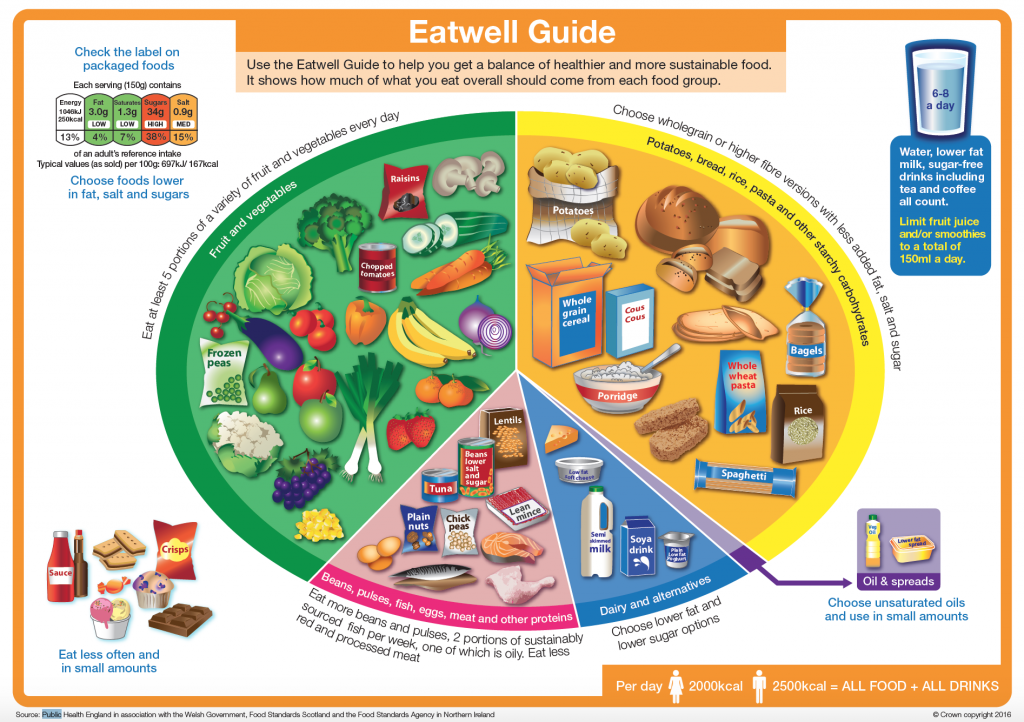
Nutrition has the great benefit to work in preventing many diseases, and fits perfectly in the holistic vision of your wellbeing: we are indeed what we eat. It’s great as well in helping us recovering from many conditions, or help our body perform better in sports, or help our mind perform better on the job, in our studies. The big plus is that you can use nutrition at your advantage on a regular basis, improving your chances to maintain your health, and wellbeing. So why, on earth, would you renounce to this opportunity?
To read more about the Government Nutritional guidelines and effectively plan your meals, head to this link.
Phytotherapy
The second place in my ABC of Natural Wellbeing goes to phytotherapy. According to Michael Heinrich (head of the Centre for Pharmacognosy and Phytotherapy in the School of Pharmacy, University College London), phytotherapy is the use of plant-derived medications in the treatment and prevention of disease. Phytotherapy is a science-based medical practice and numerous trials and pharmacological studies of specific phytotherapeutic preparations exist and are well documented. Therefore, is distinguished from other, more traditional approaches, such as medical herbalism. To give you an example of phytotherapeutic preparations in use: preparations derived from the leaves of ginkgo (Ginkgo biloba), which are used to treat a range of minor cognitive disorders and certain other disorders of the central nervous system. The aerial parts of St. John’s wort (St. John’s wort or Hypericum perforatum), which typically are used in the treatment of mild to moderate forms of depression.
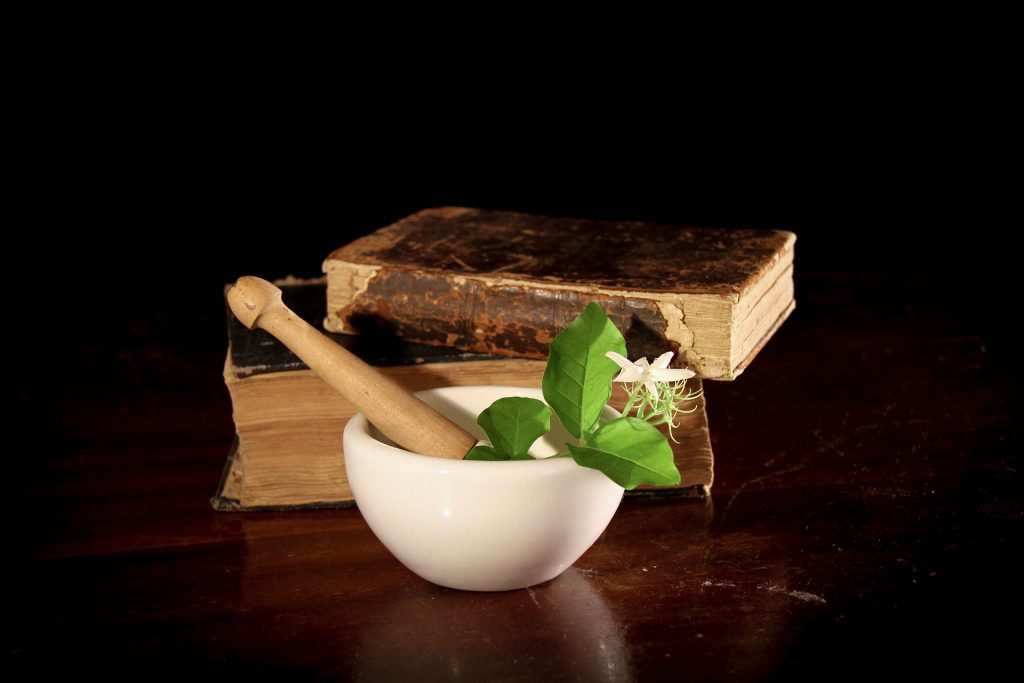
The aerial parts and roots of Echinacea angustifolia (and other species of Echinacea), which are used to treat and prevent the common cold and other respiratory conditions. Parts of African devil’s claw (Harpagophytum procumbens), the root of which is used to treat chronic lower back pain. And this are just the more widespread. (Source: Britannica.com/science) The point is that curing yourself with plant does not mean being a hippy in the forest assuming any kind of herb out there, thinking that it will be good because it’s natural. There are scientific studies that corroborate the use of herbal remedies to cater for a variety of different problems and diseases. The fact that these preparations do not come with a leaflet unfortunately depends on specific country legislation around the matter. Using a phytotherapy manual can be really helpful, as you usually find a good section on autotherapy, and on simple preparation that you can handle yourself for minor illnesses. The action of essential oils for medical purposes falls as well under the phytotherapy umbrella.
Herbal Remedies
An Herbalist, always following the definition of Michael Heinrich, is linked to more traditional approaches, such as medical herbalism, which relies on an empirical appreciation of medicinal herbs and which is often linked to traditional knowledge. An herbalist’s approach generally has not been evaluated in controlled clinical trials or in rigorous biomedical studies.
Medical herbalists make use of plants whose traditional uses are backed up by modern scientific research and clinical trials.
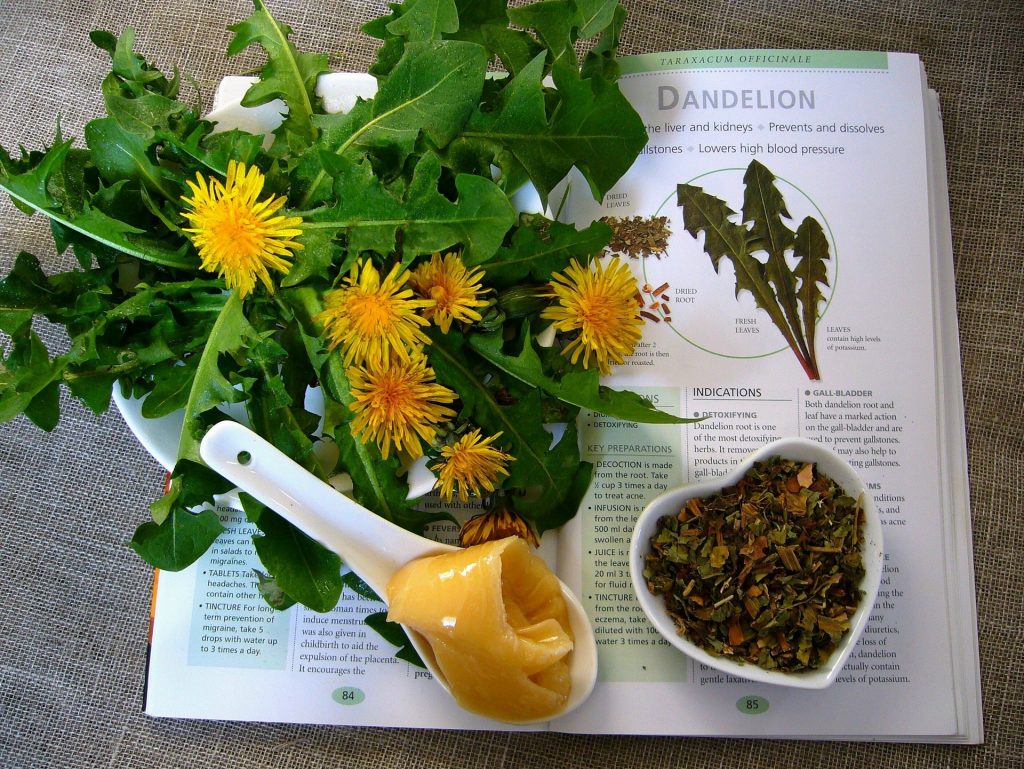
Herbal medicine is medicine made from plants, either the whole plant or sometimes parts of it, for example leaves, flowers, roots or bark. It has been the main source of medicine used by people for thousands of years. Even here a manual is precious when approaching herbal medicine, in order to ensure you try and experiment in a safe way.
Homeopathy
According to the NHS website, homeopathy is a complementary or alternative medicine. This means that homeopathy is different from other treatments that are part of conventional Western medicine in important ways. It has been developed in the 1790s by the studies and ideas of Samuel Hahnemann, a german doctor.
The main principle at the base of the homeopathic treatment is that “like cures like”: a substance that causes certain symptoms can also help to remove those symptoms. Or even better: a substance that causes certain symptoms, used in millesimal percentage on the body can help the body fight the same symptoms and cure itself.
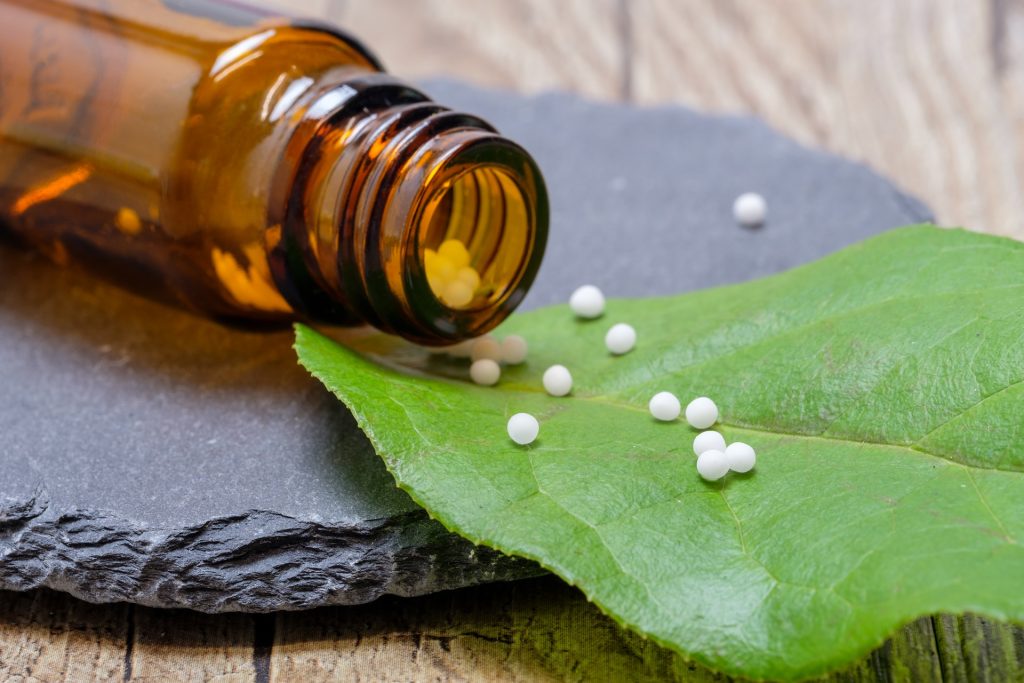
A second important principle of homeopathy, is that it is based on a process of dilution and shaking called succussion. The succussion of a highly diluted substance, following a particular method, enhances the power to treat the symptoms of each remedy.
Many homeopathic remedies consist of substances that have been diluted many times in water until there is only an infinitesimal part left. Ok, get ready because I’m getting more technical here! According to the scientific method there is no useful part of the substance left to cause any effect in our body, but I’m afraid the scientific approach has the limit of not acknowledging things that we can’t measure with our actual knowledge. At the base of homeopathy is the theory of the memory of water: a specific study conducted on the matter was proven inconclusive to determine if the water actually retain the information of what it has come in contact with. This was because sometimes it did show it retained those info, but only on a random basis. My point is: what if we simply can’t understand how it works? And as of lately, there are encouraging scientific studies that confirm the theory of the memory of water.
In my experience, homeopathy does work, and quite well and fast, according to the type of illness you are treating. I use it since many years, at first on autotherapy, then followed by my homeopath, who was a GP and paediatrician as well. I improved my autotherapy skills greatly, and homeopathy has kept myself and my daughter and all my family healthy for many years. My daughter took an antibiotic only once in her life (She is eighteen now), thanks to how precisely and efficiently homeopathy can work. Is the perfect integration with allopathic medicine, a helpful way to maintain yourself healthy and help your body healing. It won’t work for everything, but for many things it will, changing your approach to medicines, and ensuring you are going to use the heavy weapons (aka allopathic medicines) only when they are really needed, limiting any risk of building tolerance to a specific drug or antibiotic.
To know more about phytotherapeutic, homeopathic or herbal remedies, have a look at my Weleda page.
Bach Flower’s Remedies
Bach flower remedies are an alternative or complementary treatment that has been developed by Edward Bach, a medical doctor and homeopath, who created these remedies in the early 1900s. His system contains 38 remedies that each address a specific negative emotion, and ultimately the physic condition that can be generated from that emotion.
The idea behind Bach flower remedies is similar to homeopathy: Bach believed that healing negative emotions helps the body heal itself, and studied the remedies who could do just that. The illness, according to Bach, is the consequence of an internal imbalance, a psychological conflict, an unsolved emotional issue that can affect us, causing a physical illness. To heal oneself, one should remove the negative emotional state, to reinstate the balance, and help the body heal itself.
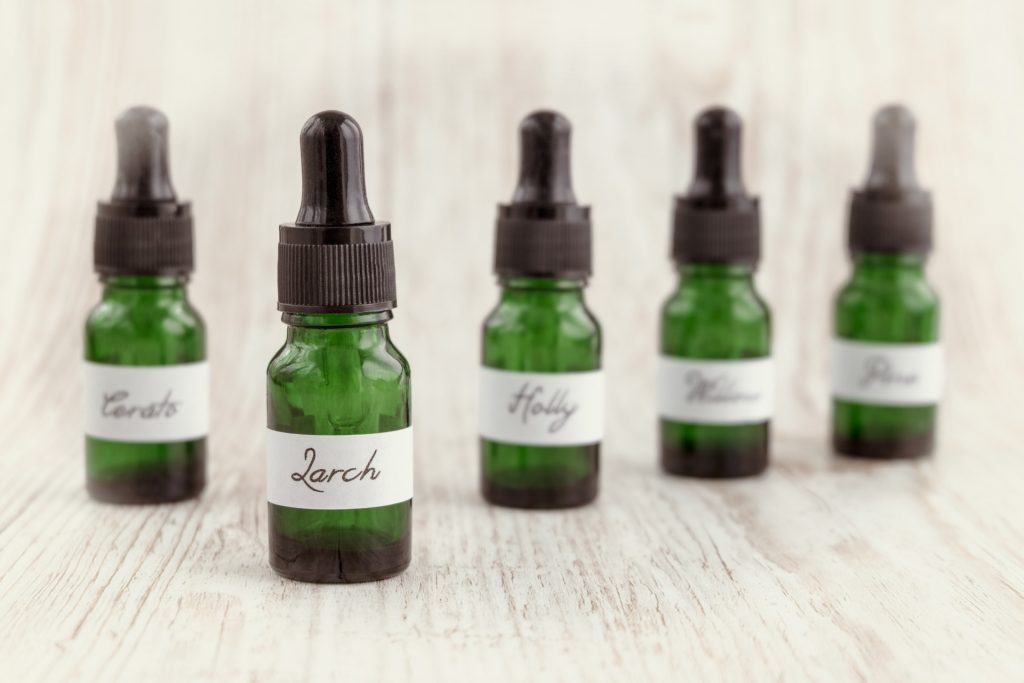
The Back flower essences are made out of watered-down extracts from the flowers of wild plants. I found the Bach flower remedies quite helpful for many different emotional states, the rescue remedy has been a precious ally when my daughter was in her nightmare phase, or really anytime that emotions are so overwhelming we need to put a stop on them. I’ve used specific flowers’ essences for mild depression, for public speaking, and again for stressing exam situations. A practitioner can help you choose the right remedies of course, but if you are willing to learn something new, there are some great auto therapy manual out there, really worth having a deep dive and finding out how flower remedies can help you.
All of the above associated with some conscious breathing exercise, or any form of mindfulness or meditation or yoga practice, together with some time spent outdoors every day, and some physical activity, and the ABC of Natural Wellbeing is almost completed.
I hope you find some inspiration to start or to proceed on your path to Natural Wellbeing, let me know in the comment if you have already worked with any of the above, or if there is one that really work wonder for you!
To read more about Natural Wellbeing? Head to how to create a Natural First Aid Kit!